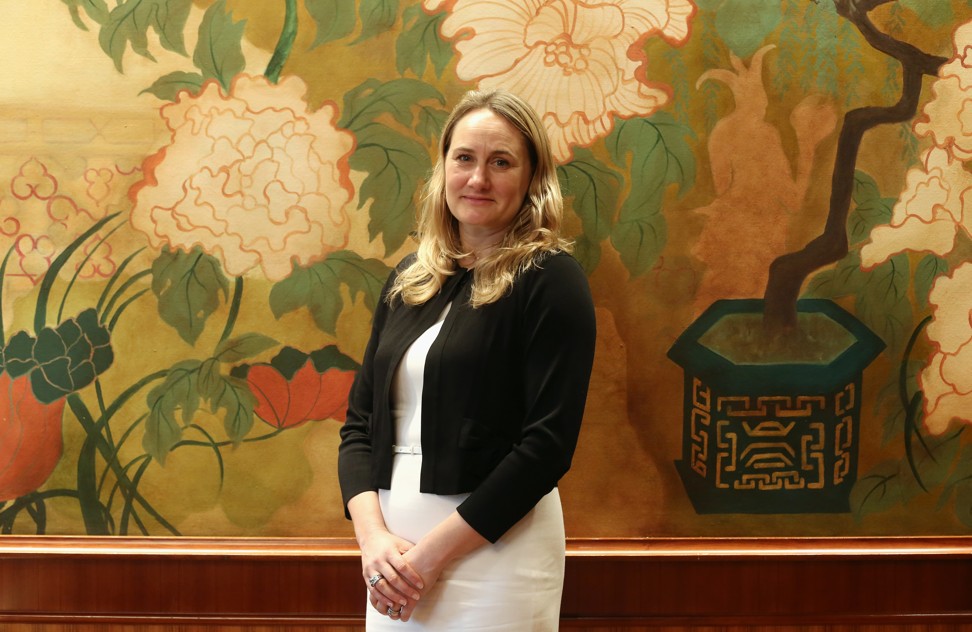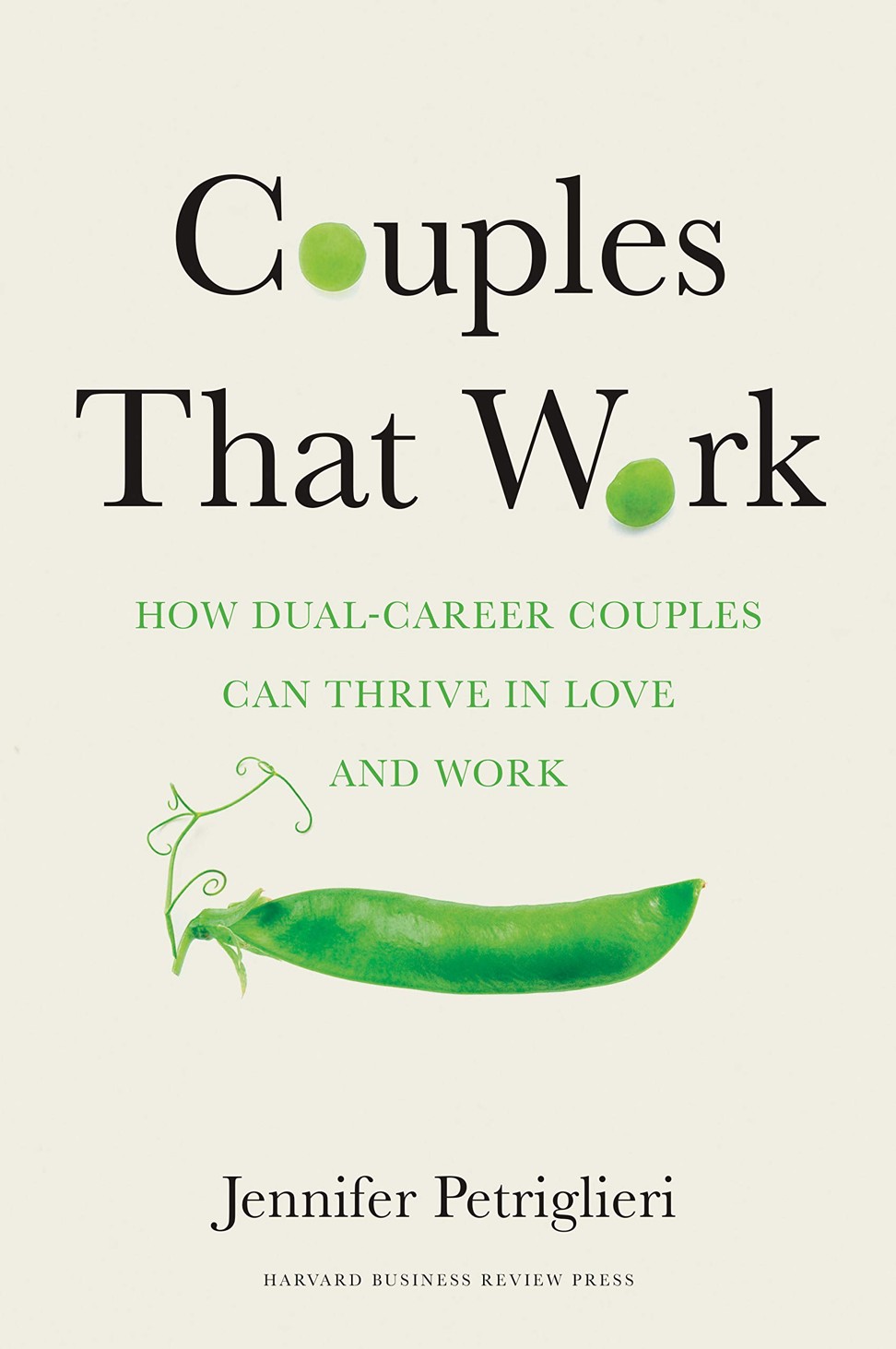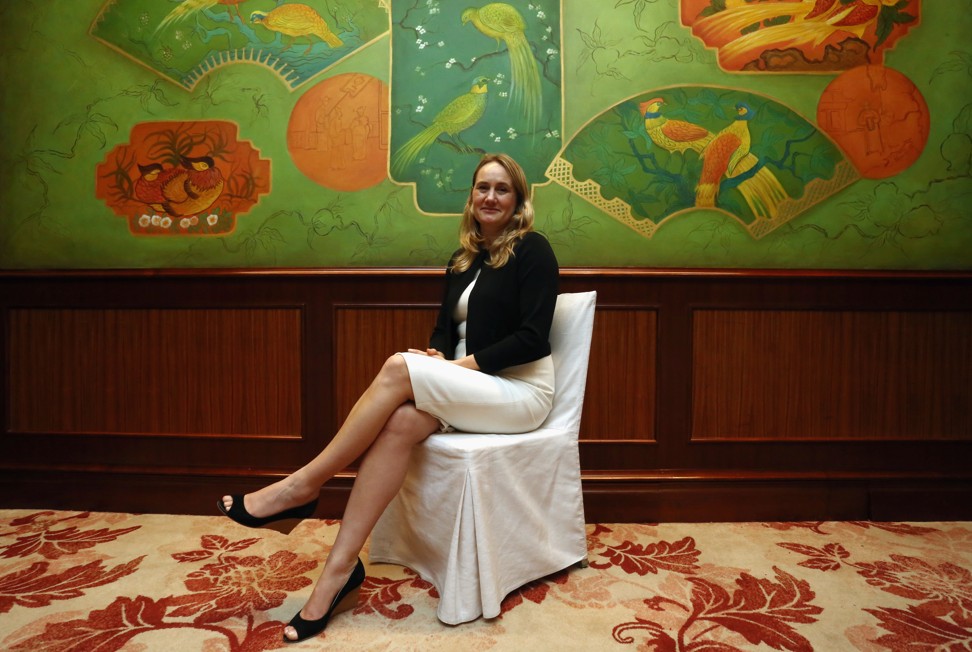
Professional couple power dynamics: you have to negotiate to make dual careers work, says author of road map to successful partnership
- An expert, herself one half of a dual-career couple, spent six years interviewing couples around the world at different career and life stages
- Those that succeed, Jennifer Petriglieri says, have regular conversations, check their power dynamics and base their relationships on kindness
It’s a Wednesday evening and the crowd squeezed into a small function room at Hong Kong’s exclusive China Club are alumni of the Insead business school.
Mostly in their 30s and 40s, they are a professional-looking bunch – men and women fresh from their offices.
What has enticed them to come straight here, skipping dinner? Perhaps a talk on banking trends or corporate governance? No – they are here to discover the secret to being a successful dual-career couple.
The number of dual-career couples is on the rise. In North America and Europe, both partners in more than 65 per cent of couples are working, and that number is increasing. Even in Japan, where the proportion of dual-career couples is slightly lower – at about 60 per cent – the trend is consistently upwards.


“I remember listening to that and thinking: ‘Yes – and is that it? I just pick the good person and then everything magically unfolds.’ That was just not my experience, and it wasn’t the experience of pretty much anyone I knew,” Petriglieri says.
She went to the library in search of answers, and although she found plenty of practical advice – about how to divide childcare, for example – there was no solid research that examined how couple’s careers impact each other and the intersection of the two.
That marked the start of her six-year research project interviewing couples around the world at different career and life stages.

“There’s very little out there for couples that looks at the intersection between work and relationships. There’s stuff on relationships … and a lot of stuff on career development, but it treats your career in isolation, as if you are no-strings-attached. My ambition in the book is to shift the conversations to look at what does it really take to work,” says Petriglieri.
What most people at the China Club event wanted to know was: what’s the hack? What is the ultimate arrangement that makes for a successful dual-career couple?
That was the holy grail that Petriglieri was chasing, but three years into her research the data showed that there wasn’t one single arrangement that worked.

Then she had her “aha!” moment.
“It’s not about the arrangement. Anything can work, but it’s really important that you explicitly negotiate it,” Petriglieri says.
Relationships happen for a reason. Why you should know yours
“When couples focus on that division of labour – who does what – they fall into a trap which spells the end of relationships, the trap of having a persistent imbalance of power,” she says.
Petriglieri’s definition of having power in a relationship is whether each partner is supported to achieve his or her ambitions. Critically, it’s not whether they are able to achieve their ambitions, but whether they feel they are supported to go for what they want.

Though she didn’t discover a “hack”, Petriglieri did find common ground among the dual-career couples who made it work: they developed a habit of having deep conversations about things that didn’t concern money, childcare or logistics. They spoke about the things that really mattered, things that might be considered principles or values.
“Do you want to be a couple that is embedded in your family or origin? A couple that travels regularly? A couple with close ties to your community? These things matter and should be the decision criteria for when you get your big decisions coming up,” Petriglieri says.
She encourages couples to write these things down separately and then look at them together. The idea is not to find a match, but that each partner understands the other’s ambitions.

“The couples that failed, failed because they didn’t understand what they were supporting,” she says.
She also recommends that couples discuss which lines they are not going to cross. For Petriglieri and her husband Gianpiero, this was not working outside Europe. For others, it might be a time boundary, such as not travelling for more than 20 per cent of the time. And with boundaries in place, couples feel safer.
“One of the problems of privileged people is that you’ve got too many choices. If you remember your decision-making classes, too much choice makes it harder to choose, and more likely we’ll regret our choice. Limiting choices is a good thing to do. It makes decision making easier. It makes us feel safer and happier,” she says.
How talking about past relationships can strengthen your future
Petriglieri’s data showed that the struggles couples face tend to come at three specific transition points.
For expat couples who come to Hong Kong and decide that one partner will stop working because the other partner (often, but not always, the man) is earning so much more, she cautions against what she calls the “economic criteria trap”, which may make sense in the short term, but long term is a fragile option.

“Unfortunately, this outcome is often not a good one. It’s interesting, when we look at divorce statistics, that the lowest probability of divorce is for couples who roughly earn the same amount and roughly do the same amount of house care – it’s 40 per cent lower than baseline,” she says.
“For local working parents, it’s a double-edged sword. It’s free childcare, but it’s support with strings. It felt like it was hard for couples to push back on their parents and set boundaries, which often caused tension in the couple,” she says.
A comfortable retirement? Not if you’re a Japanese woman
Petriglieri’s three golden rules for dual-career couples
One: Have regular conversations – two or three times a year, and definitely around major transition points – about the things that matter, your values and principles.
Two: Watch out for power dynamics. The couples who do well are the ones who try to make sure that both of them get most of what they want. That doesn’t mean you have to earn the same amount or do the same things, but you both get a shot at perusing your own ambitions, personal and professional.
Three: The couples that last the longest are the ones whose relationship is based on kindness. Especially for a busy working couple, it’s so easy for that to go out the window and it’s such a basic thing. A lot of that kindness is about recognising sacrifice. If one partner goes away on a work trip, it means a lot to say: “I’m grateful you’re holding the fort this week.”

